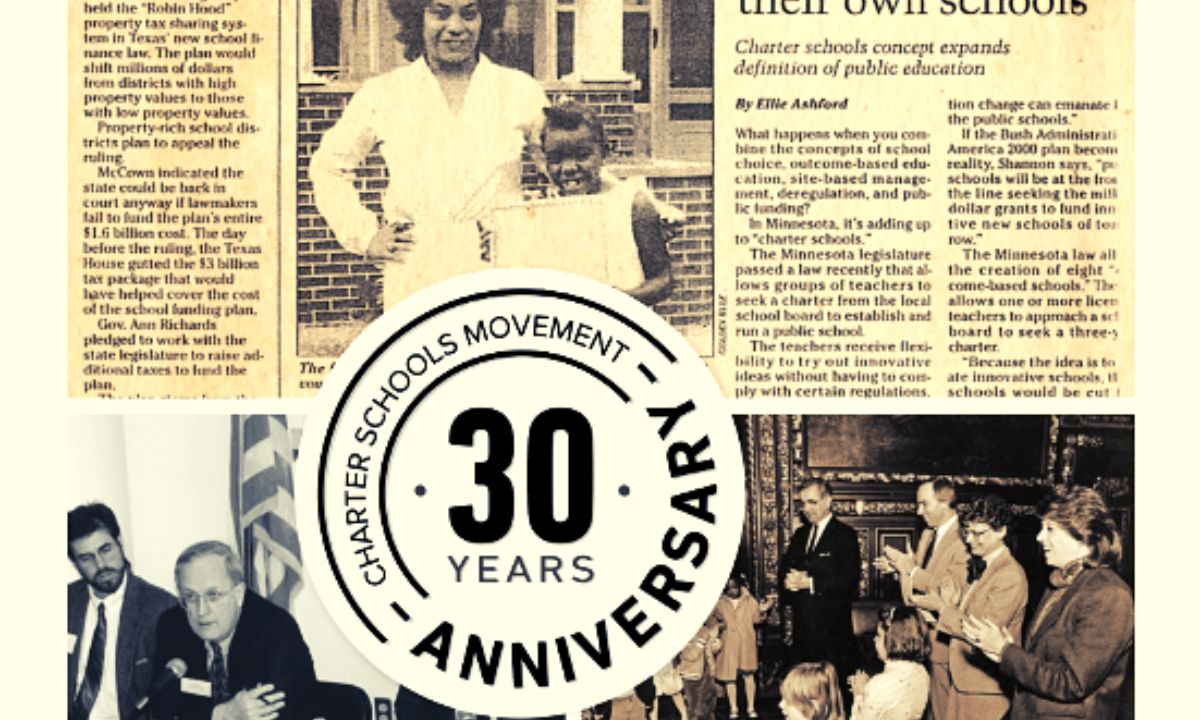National Charter Schools Founders Library Preserves the Past, Shapes the Future
Junge: Archive's oral histories from charter pioneers are keeping the idea behind these innovative schools from being twisted for political aims.

Get stories like this delivered straight to your inbox. Sign up for The 74 Newsletter
When parents and students at a North Carolina charter public school challenged its “skirts only” rule for girls as discriminatory, it was an interview with former North Carolina House Speaker Harold Brubaker on the charter law’s intent that likely helped win the day in federal court.
Though it’s been 25 years since he’s been speaker and a decade since he was a legislator, Brubaker affirmed in that interview that the law intended charter schools to be public, not private — countering the claims of the defendants in Charter Day School, Inc. v. Peltier.
With the Supreme Court declining to hear the case, Brubaker’s words likely helped stop a move that could have undermined dozens of charter school laws and set a dangerous precedent for chartering everywhere.
The 2021 Brubaker interview wasn’t conducted by a litigant or journalist, but by the National Charter Schools Founders Library, a digital archive dedicated to gathering and preserving the history and progress of the charter schools movement.
As the former Minnesota state senator who sponsored the nation’s first charter law, in 1991, I joined several early charter school pioneers in creating the library in 2017 and co-chair its Board of Advisers.
We observed, over the last 30 years, how public charter schools are mischaracterized by people of all stripes for their own purposes. We knew that would worsen unless we captured the history while the pioneers were able to share it. The result is a living, breathing repository of original source documents and perspectives. About a dozen states and the District of Columbia are represented so far. We hope to move across the country, as the movement did, to capture the stories of more charter states (currently 45) and capture more of the federal story.
The digital collection acts as a record that will not only continue to inspire new leaders, but also inform future policymakers, educators, advocates and others who want to build on the movement begun in Minnesota 32 years ago.
Charter Day School v. Peltier is just one instance where the Founders Library helped preserve the chartering idea. In Washington, D.C., opponents sought to defund a federal program that has provided billions of dollars to support new charters, claiming it had strayed from its original purpose. But interviews and original source materials housed in the library from the program’s sponsor, Sen. Dave Durenberger of Minnesota, demonstrated otherwise. The grants survived. In California, a Founders Library interview with that state’s chartering pioneer sponsor, state Sen. Gary Hart, helped defeat an anti-charter effort that commenced after Hart’s death in 2022.
Because the library provides a trusted narrative around the purposes of chartering going back to its origins, it can correct mischaracterizations by extreme elements on both ends of the political spectrum. Some on the far right are pushing for charters to be run as private religious schools, exempt from the constitutional protections afforded to public school students. Some on the far left are calling for charter school moratoria and would require many non-unionized charters — despite their successes — to engage in collective bargaining.
Caught in the squeeze are more moderate politicians who support charters but fear the wrath of the extreme wings of their parties. Far too few, on both sides of the aisle, understand that charter public schools are a way for teachers and community leaders to create new, equity-driven approaches to education focused on results and performance-based accountability.
Former President Bill Clinton called this the “Third Way” in public education reform. It’s what I, along with hundreds of other Democratic and Republican legislators, stood for when introducing and passing chartering laws. This bipartisanship is reflected in the oral histories from both Democrats and Republicans in the Founders Library.
Charter public schools constitute a dramatic and consequential public education reform, growing from the 35-student City Academy in St. Paul in 1992 to 7,800 schools educating over 3.7 million students today.
Twisting the idea that created these opportunities puts children’s futures at risk. Political gamesmanship leads to bad laws and distracts from the real impact of students learning and forging a better path for themselves.
The library is a bulwark against this. We believe that learning the lessons of history through the founders’ own words will inform public debate, shape better policy and catalyze even greater improvements in the decades ahead for all public schools.
Had Brubaker’s oral history never been recorded, the outcome in North Carolina could have been vastly different. A poorly grounded court ruling could have put so many schools and kids in jeopardy. Instead, the original intent of charters as tuition-free, public and open to all prevailed. That’s the difference that the Founders Library can make and the power that preserving an idea can have for the future.
Get stories like these delivered straight to your inbox. Sign up for The 74 Newsletter

;)
